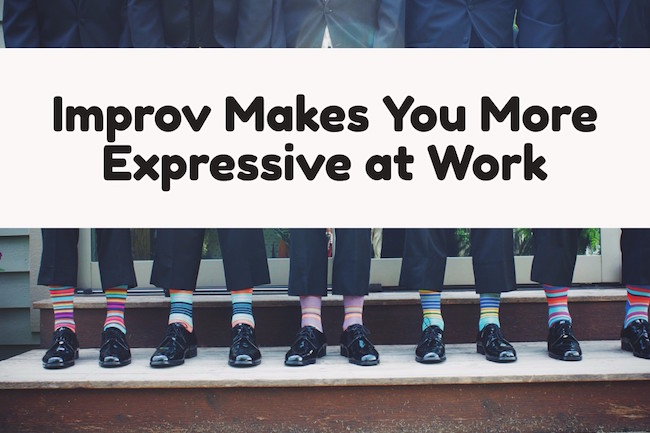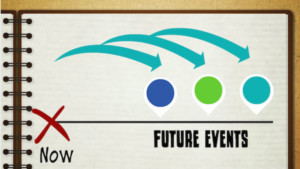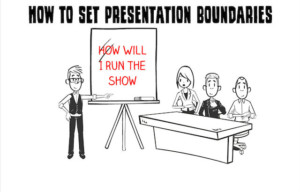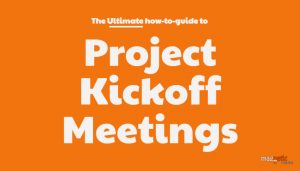10 Years ago I attended my first set of improv classes in San Francisco. I signed up because I was an introverted engineer trying to become more expressive as a public speaker.
Now, I am a national speaker and run one of the fastest growing public speaking training companies in the Bay Area. I owe a lot of that to the improv classes I took and still take on a regular basis.
In my first class – The trainer made us stand in a circle and asked us to introduce ourselves all at the same time. As everyone started talking out loud, I found myself thinking: “I am an engineer, what the heck am I doing here?”
Luckily, I decided to stick to it.
After that first class, I felt energized and almost high. I knew that I would be back. I ended up completing the set of classes and ended up taking more improv and acting classes throughout the years.
The improv classes made a profound difference in my expression ability, speaking skills, and confidence. I learned a lot about myself and public speaking
In this article, I will share some of the things I learned.
What is Improv?
Improv (short for improvisation) is a form of acting without pre-planning or scripting. Improv was made famous by the comedy show “Whose Line Is It Anyway?” It’s taught as performance art, but it’s benefits to team building, public speaking, leadership, and business are significant.
We are all born improvisers. Have you ever seen a kid in a supermarket playing with a little car? Kids do improv naturally, but as adults, we somehow lose contact with that power.
Taking improv classes will help you find again the natural power you have. The power to be creative, expressive, and witty.
1. It’s ok to make mistakes
Being trained as an engineer made me worried about making mistakes. I was taught in my chemistry and math classes to check and double-check my work. Although, that’s helpful for technical work, it’s not the best technique when it comes to communication.
When people communicate they are fluid and imperfect; they make grammar mistakes, don’t have perfect pronunciation. And That’s ok.
In the book, Confessions of a Public Speaker the author says that people make mistakes “on average once every ten words…. If people say an average of 15,000 words each day, that’s about 1,500 verbal blunders a day.”
In improv classes, you learn to accept your imperfections. Accepting your flaws does not mean that you stop working on them. Now that you accept your weak points, you can work on them positively instead of in a negative, frustrating way.
2. Thinking on your feet can be learned
Are you more comfortable when presenting a prepared talk?
Most people are.
Unfortunately, that’s not how most presentations go. People interrupt you; people ask you questions, management wants you to talk about other topics. If you can’t think on your feet, you will be in trouble.
Most of the exercises in improv classes develop your ability to think on your feet. Whether you are creating a scene, playing a character, or doing word associations, you are forced to think on the fly.
. The best way to learn it is through improv because classes give you a safe and non-work-related context to practice and build your muscles.3. Present well in team presentations
Most of the time when presenting at a company meeting, you are talking about a partial piece of the puzzle. As a result, you have to know how to present as part of a team.
It could be nerve-racking. You don’t know where to start, how to transition to the next person, how to add more value, etc. Sometimes smart professionals end up giving away their share to somebody else to present and lose their hard-earned recognition for the work they have done.
Since improv is a team activity, you learn to communicate well in a team atmosphere. You will learn how to interpret gracefully, how to add value, when to speak, and when to be quiet. In other words, you will acquire all the social etiquettes that will help you present better in teams.
It’s amazing after we do an improv training inside an organization with an emphasis on public speaking how the attendees bond and become better at presenting in groups. All we do is provide them with the same space and some tools to practice.
Improv teaches you to become a better group presenter for sure.
4. Be funnier
I get asked every day: “Peter, how can I become funnier?”
My answer is always the same; you are already funny, all you have to do is hone it in. I did some standup comedy to help me hone my comic skills, however, what helped me the most is Improv.
To be funny, you have to learn to let go and have fun. It’s funny to say, but I had to learn how to loosen up a little bit. Improv helped me more than you can imagine.
Before improv classes, I used to watch comedians and improv actors and used to say to myself “Wow, I wish I could do that!” Now I can do most of what they do. It did not happen overnight; It took me years of consistently taking acting and improv classes to be able to do what I do.
Now when I speak, for the most part, I have fun with it. Because of that, I make people laugh. I never try to tell a joke on purpose, but because I am relaxed and open, I let my personality come through and people like that. I notice that the more I let go, the more I have fun, and the funnier people find me.
That’s why I invest in studying improv and even show up to our improv classes at Magnetic Speaking on occasion to practice. Some of you might have seen me there!
Conclusion and where you can take improv classes in San Francisco
For years, I recommended improv classes to my clients who are serious about developing their public speaking skills, leadership, and communication effectiveness.
I recommended many of the excellent Bay Area and San Francisco Improv companies. My clients got a ton from it, but they always asked me for help to tie back to public speaking. I did that for years.
That’s why this year I decided to launch a new class at Magnetic Speaking: Improv for Public Speaking, a program that helps smart corporate professionals and leaders improve their creativity, thinking on their feet, and expressiveness in front of groups.
The difference here is that the Magnetic Speaking improv class is specifically tailored towards improving your public speaking in addition to all the other benefits you get from a traditional and general improv class.
Hope you can join us on Wednesdays of every week.



